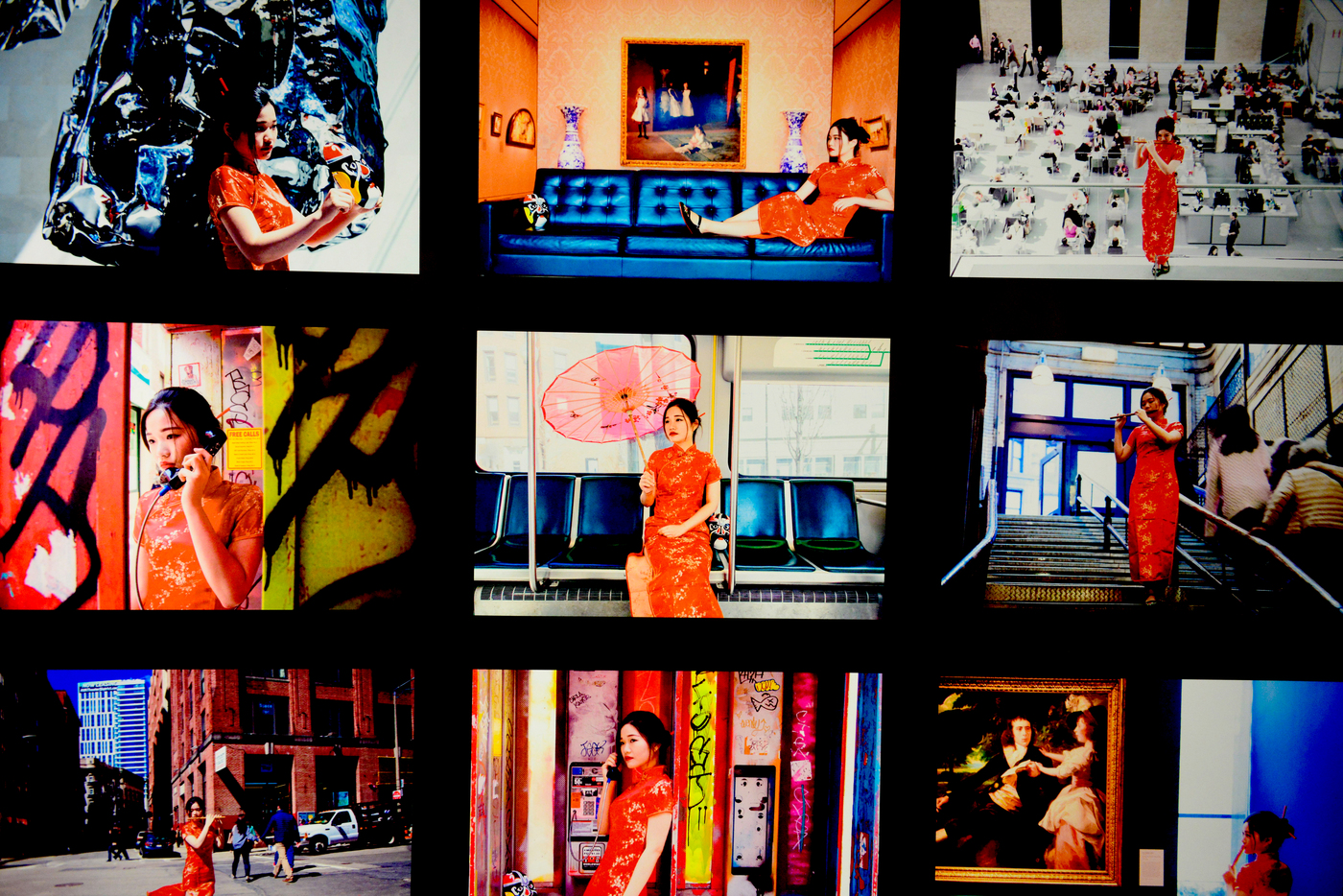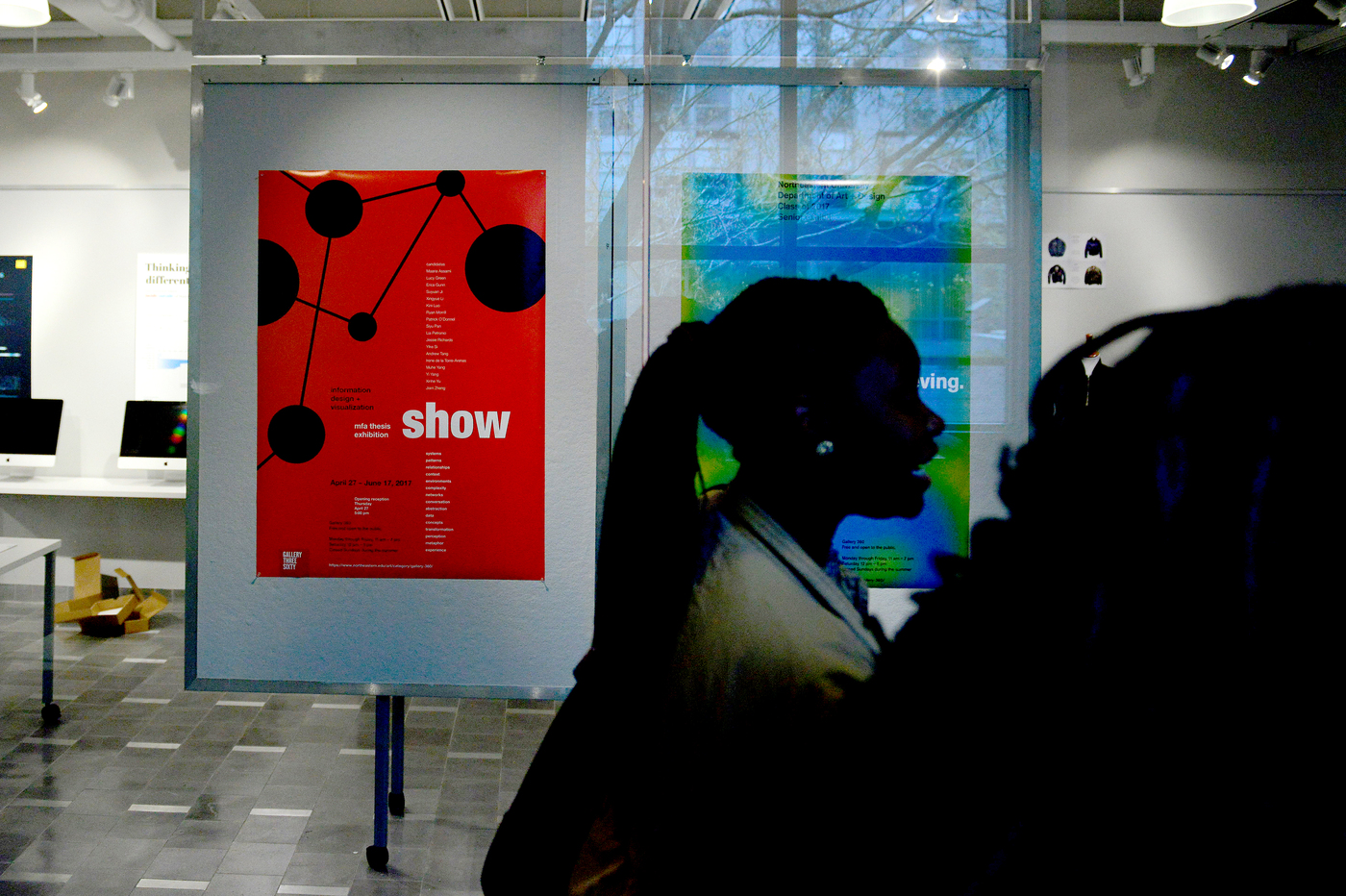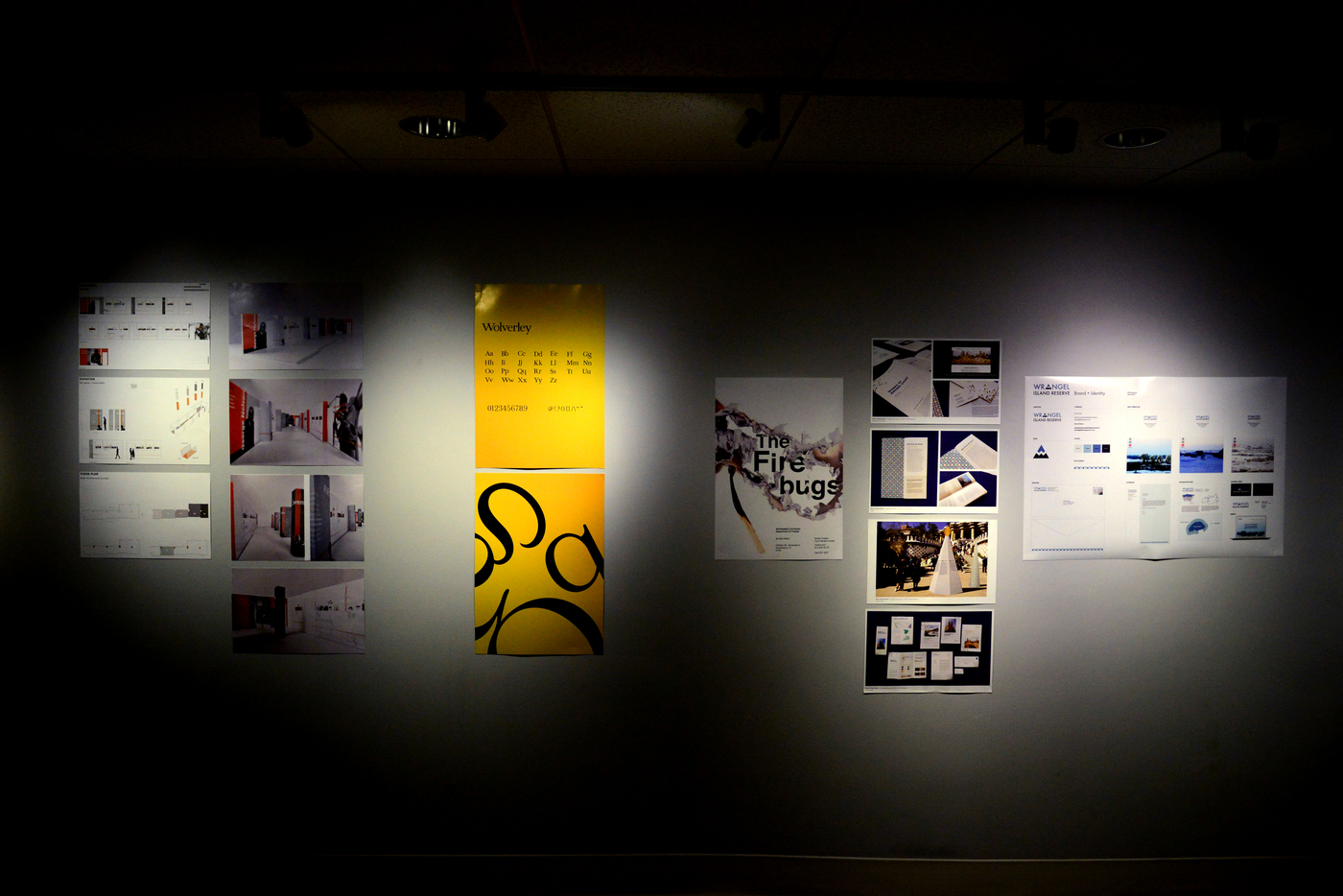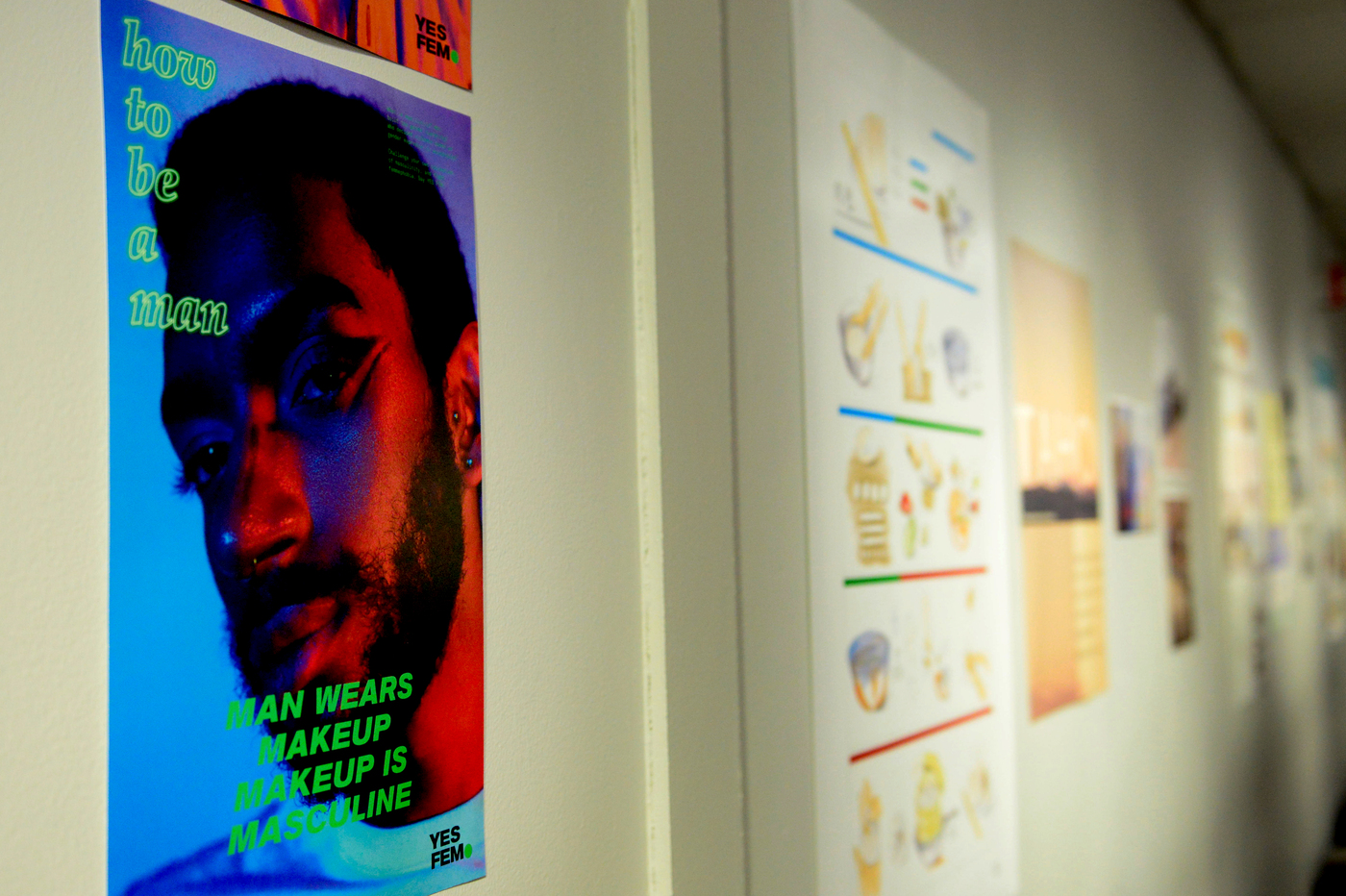Design, global perspectives drive student thesis show at Gallery 360

How easy is it to talk online with artificially intelligent “chatbots”? What’s the human toll of Syria’s Civil War? Can we track climate change through the health of soil? The answers to these questions, and more, can be found in Gallery 360.
The interactive, digital, design, and sculptural projects currently on display in the gallery space as well as the concourse around it represent months of work by graduate and undergraduate students in the College of Arts, Media and Design’s Art + Design program. In fact, the projects, up until June 17, represent some of the artists’ final theses.

The Information Design and Visualization exhibit is on display in Gallery 360. Photo by Matthew Modoono/Northeastern University
By the very nature of the exhibit, there’s no one distinct theme. But organizers say some trends have emerged organically.
“This is the most design-focused thesis show I’ve seen yet,” said Bruce Ployer, campus curator. “I think that’s a testament to the university’s strength in that arena.” He added that the global perspective of this year’s students has helped inform the unique points of view of many of the projects.
Attendees can thumb through bound zines and books, interact with digital displays, or digest a complex topic through a visual display.




Andrea Raynor, interim chair of the Department of Art + Design, said she noticed students were responding “to what is happening environmentally, culturally, and politically.
“I think the student projects are excellent this year primarily because of the issues tackled by the students and the depth of research that was involved in the projects,” she said.
Program leader Dietmar Offenhuber, assistant professor in the Department of Art + Design and the Department of Public Policy, noted that social and political themes were “very strong” this year.
“Though it’s difficult to come up with a consistent theme for this sort of thesis show, two themes did seem to rise to the fore—that of exploring invisible social realities and the materiality of information,” he said.